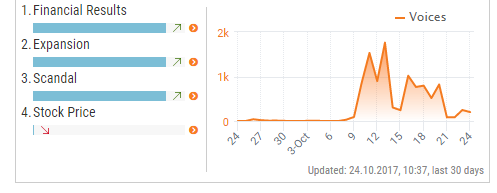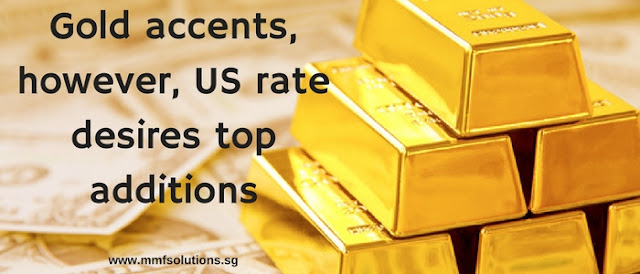London is confronting challenges on various fronts to its hundreds of years old status as of where the world exchanges gold. Two U.S.- based trades, CME Group Inc. also, Intercontinental Exchange Inc., have made better approaches for purchasing and offering valuable metals. So has the London Metal Exchange. Exchange volume in New York is rising, and China, where the vast majority of the metal winds up, is giving speculators better approaches to wager on gold's cost. The majority of this is a danger to London's over-the-counter market, truly the main player in worldwide exchange of bullion.
1. How did London turn into the focal point of gold exchanging?
It's been that path since Moses Mocatta moved to London from Amsterdam and after that, in 1676, joined forces with the East India Co. to dispatch gold to India. The Bank of England, set up in 1694, turned into a focal player in the gold exchange, and refineries jumped up adjacent in London's monetary region. London's workday, which covers that of New York and Hong Kong, is an or more, similar to the U.K's. the long history of regarding property rights. Gold exchanging remained to a great extent unaltered through hundreds of years: Deals are still regularly stuck on a virtual handshake.
2. What amount of exchanging would we say we are discussing?
That is difficult to know. Most by far of gold exchanging London happens off-trade, in bargains struck specifically amongst purchaser and merchant - each going out on a limb of the other, without a mediating clearinghouse. What's known is that cleared, announced exchanging the city surpassed $6.2 trillion a year ago, as per inquire about firm CPM Group.
3. Why is London in danger of losing its hang on gold?
The control by a few brokers of Labor - the London interbank offered rate, long the benchmark for day by day developments in financing costs - brought up issues about the trustworthiness of all value settling by people, including how investors set the day by day benchmark for gold in London. That prompted a more prominent investigation by controllers. New principles under the structures known as MiFID II and Basel III may make exchanging off-trade more costly, disintegrating the fundamental favorable position of London's OTC market. At that point along came Brexit, which has driven a few banks to report they expect to move staff far from London, including from the money work areas where valuable metals dealers once in a while dwell.
4. What danger does New York posture?
CME's Comex in New York is the greatest prospects showcase for gold - and developing quick. In the three months that finished on Sept. 30, Comex saw record exchanging, with very nearly 20 million contracts evolving hands. What Comex has put it all on the line, in correlation with London's OTC market, is straightforwardness - in volume, liquidity, and evaluating - that originates from exchanging on a trade and through a clearinghouse.
5. What risk does China posture?
China's customers are the world's greatest purchasers of gold, and - not at all like their companions in London and New York - they get a kick out of the chance to take physical ownership of the bullion they purchase. The Shanghai Gold Exchange, which was shaped 15 years back in rivalry with London, has seen its volume develop. Since a year ago, it has set everyday
cost for gold, an endeavor to build up a provincial benchmark and improve the efficiency of the yuan on valuing. Fates contracts can be found on the Shanghai Futures Exchange, and most as of late, the Hong Kong Exchanges and Clearing Ltd. tossed its cap into the ring by offering yuan-and dollar-named gold fates.
6. What are different contenders out there?
Gold exchanging on the Tokyo Commodity Exchange is in long-haul decay. In India, where the volume on the Multi Commodity Exchange endured a shot as rising stock costs tricked financial specialists far from valuable metals, the administration is said to be in converses with enabling the business to set up another spot gold trade. Singapore Exchange Ltd's. discount kilobar contract, which started three years prior, stays hopeless, with zero volumes this year as of September, in spite of endeavors to restore it by broadening exchanging hours and permitting less demanding check.
7. How is London battling back?
The London Bullion Market Association, which speaks to merchants in the city, hit an arrangement with money-related innovation firm Boat Services Ltd. to make an exchange detailing stage, which will enable the OTC market to stay consistent with directions. In the meantime, the World Gold Council, working with the London Metal Exchange and a gathering of banks, presented another framework for exchanging gold and silver prospects under the flag of me valuable. A portion of the greatest exchanging banks has begun testing another bullion-exchanging stage made by Autilla Inc. in February. Also, CME and ICE have contracts to encourage a move to more straightforward exchanging.
8. Is London battling a losing fight?
No. The vast majority of the banks' exchanging work areas are very much spoken to in the city. More critical, the buoy - the monster store of gold that underlies exchanging - is vigorously packed in the city. More than 7,000 tons of gold and 32,000 tons of silver, all things considered, worth more than $19 billion, are put away in shrouded vaults oversaw by the Bank of England, JPMorgan Chase and Co., HSBC Holdings Plc, ICBC Standard Bank Plc and others. Furthermore, as long as the gold's here, and the business will adjust to change, London will most likely remain a power in the gold market.
The Reference Shelf
- A paper by the World Gold Council on liquidity in the worldwide gold market.
- QuickTake explainers on gold's good and bad times and on benchmarks and monetary fiddling.
- Bloomberg's review of the battle for London's gold business.
- A course of events on how London's gold market advanced.
- A 2011 appraisal dispatched by the London Bullion Market Association on the extent of the city's exchange.


















